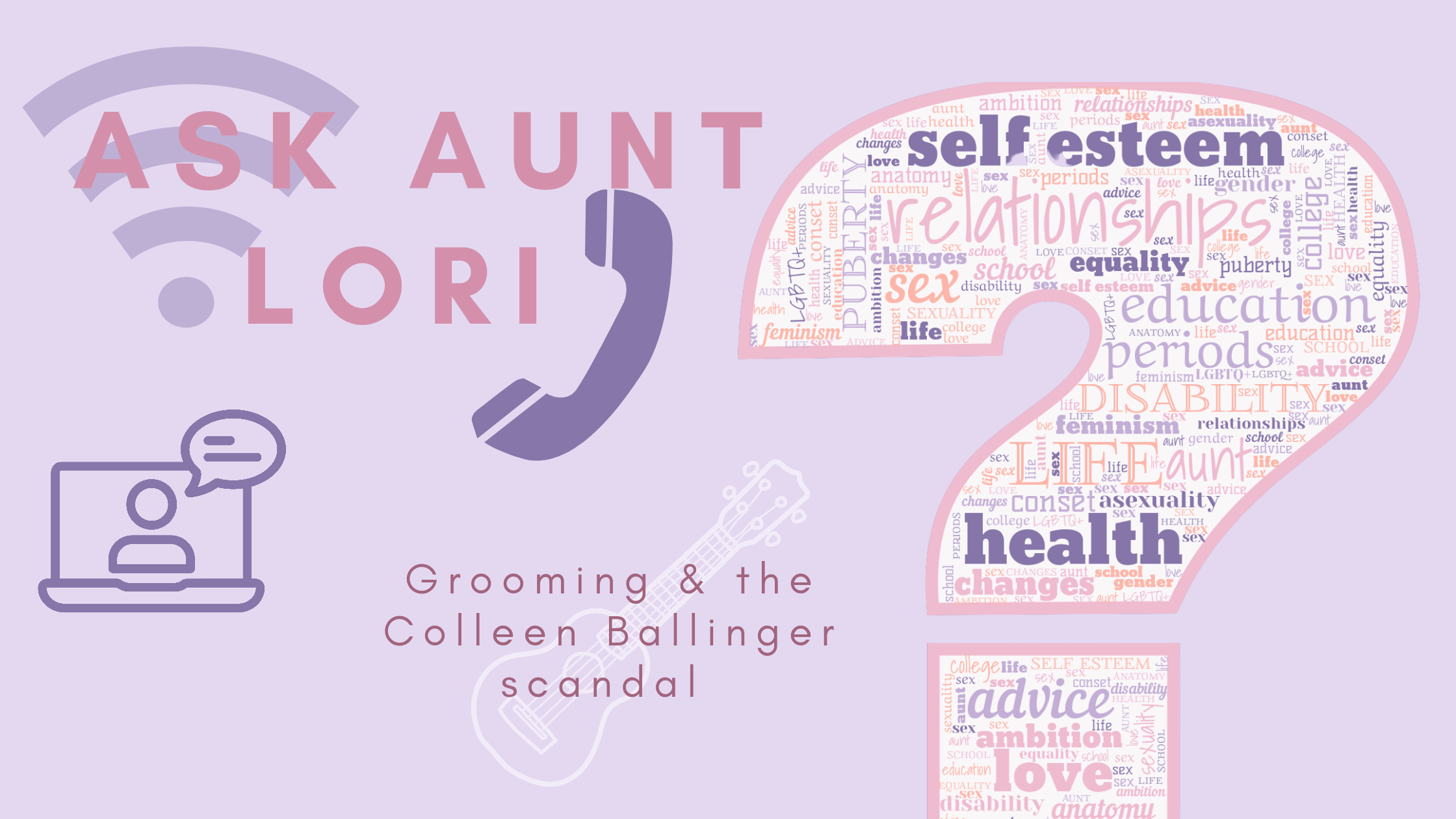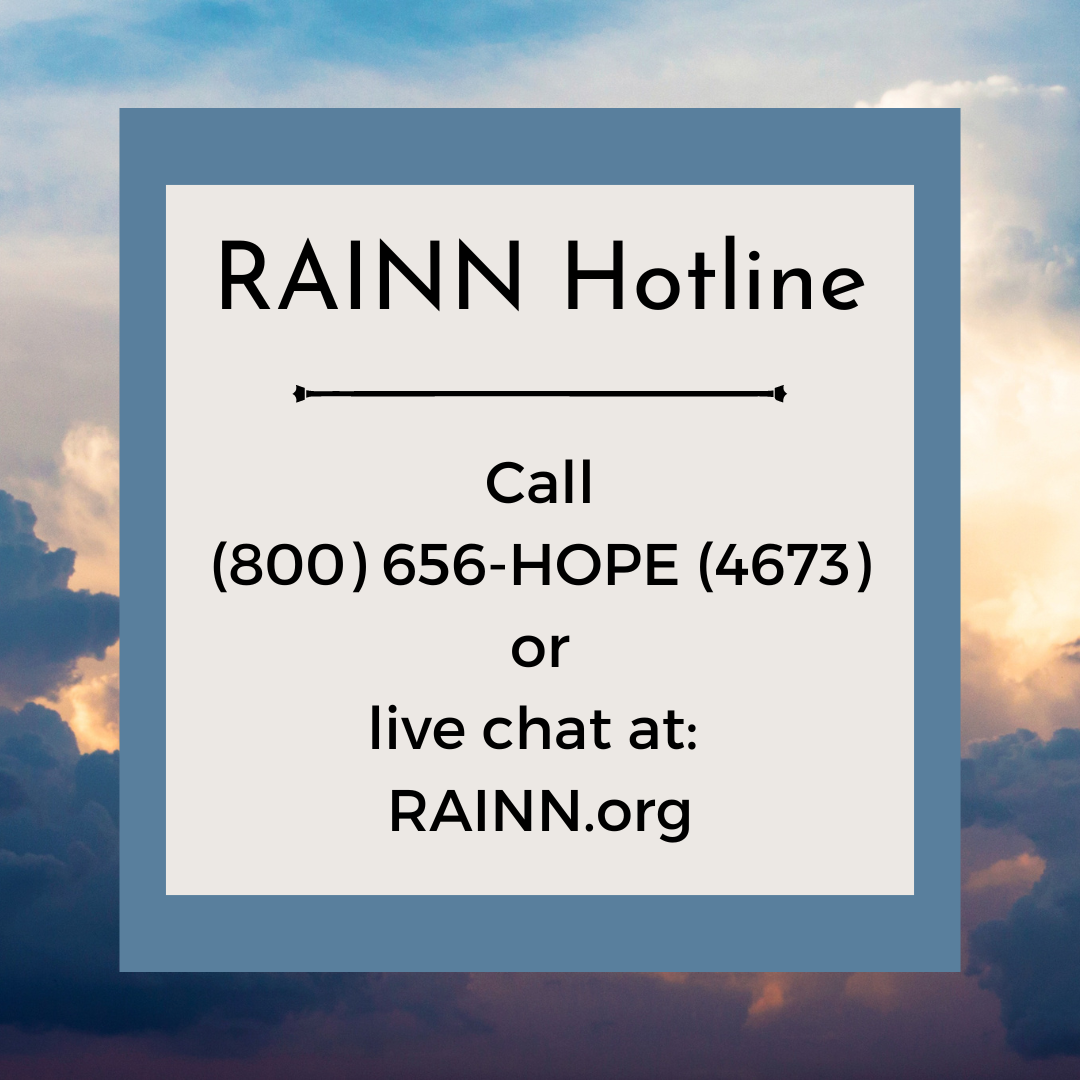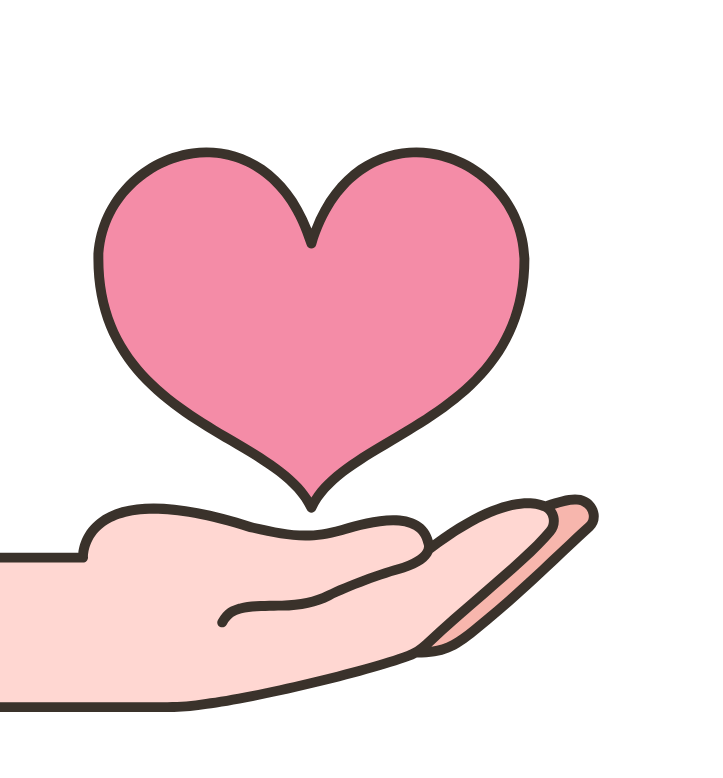Ask Aunt Lori - Grooming
TW abuse, domestic violence, sexual abuse, child abuse, grooming
Amid the Colleen Ballinger situation, we need to talk about what grooming is, how to spot it, what to do if you see it, and the tactics that groomers use to deflect allegations and downplay their actions. Knowing these things can help keep yourself and others safe.
What is grooming?
Grooming is a collection of manipulation tactics that an abuser does in order to gain access to the victim, coerce them into agreeing to the abuse and reduce their chances of getting caught. This term is most often used to describe an adult abuser's behaviors towards a minor that they sexually abuse, but the term isn't specific to those situations. Abuse may be any form of abuse, including, but not limited to:
Physical
Emotional
Exploitation of labor
Trafficking
The RAINN website has a great definition of it here and I highly recommend reading it if you have not already.
Warning Signs
Grooming can be done online or in person. Often, the abuser is someone that the victim trusts or looks up to. Each situation varies slightly, but it often follows a certain pattern. The behaviors are often based on normal social behaviors, but taken to an extreme and distorted. The abuser uses that in order to normalize and downplay their actions, but it's important to keep in mind that they are NOT normal and are rotten social behaviors.
For example, an abuser may say, "all couples fight." This is a true statement, but a normal disagreement is FAR from the screaming, degrading, and punching fights that an abuser is referring to.
Some of the common grooming warning signs and patterns:
Targeting
Abusers carefully select their victim(s). Often this is based on the victim's perceived vulnerability, how likely they are to be caught and stopped, loneliness and isolation, and other other factors that work in their favor. The abuser often has a preferred "type". Disabled and chronically ill people are often targeted.
Gaining trust
The groomer may love bomb and shower their victim(s) with gifts, and encourage the victim(s) to keep secrets between them and not tell the trusted adults in their lives. This is often the first line that is crossed.
In cases where the victim is a child, the abuser will often gain the trust of the caregiver as well as the child. This also lets them gain access to the child.
Filling a need
This ties in heavily with the targeting, as the abuser will fill a need that the victim has. Often in children with distant parents, the victim will provide a present and active adult in their lives that can provide validation and support.
Isolating the victim
This is especially where lines begin to be crossed; the abuser begins to isolate the victim by trying to get one-on-one time and mentally isolating them by statements such as: "nobody understands you, but I do" or making them feel special.
Desensitization
At this point, the abuser may "test the waters" and get the victim desensitized to the abuse. In the case of sexual abuse, the abuser will probably start to make physical contact or discuss sexual topics.
The blatant abuse
Now that the foundation has been created, the abuser will begin the blatant abuse. This step is when actions that most people would recognize as abuse: sexual assault, rape, physical abuse, exploitation, trafficking, psychological abuse.
Trying to normalize behaviors and maintaining control
The abuser will start to cover their actions and avoid getting caught. They'll use secrecy, blame, guilt, and threats to assure that the victim doesn't tell anyone about the abuse.
Often they'll try to convince the victim that what they're doing is completely normal. In cases of physical abuse, they might say something like, "everyone argues" to make the yelling and hitting seem like a normal argument.
The most common tactics used by abusers is DARVO: deny, attack, reverse victim and offender. I'll elaborate more on this later.
What do you do if you see it?
In the case of when you notice this with a child victim, immediately bring it to the attention of their caregiver(s) and any other trusted adults in their lives such as a teacher or school counselor.
Per RAINN.org:
To report sexual abuse of a child or teen, whether it occured in-person or online, visit childhelp.org.
To help you recognize warning signs or to get support if you find out a child or teen in your life has been abused, you can speak with someone who is trained to help. Call the National Sexual Assault Hotline at 800.656.HOPE (4673) or chat online at online.rainn.org. It’s free, confidential, and 24/7.
In cases of adults, it's best to tell their trusted adult friends and family as well as have a discussion about your concerns with them (it may be helpful to have others help with this conversation). Give them resources and offer them any help you can.
Regardless of age, if there is a victim of abuse in current or immediate danger, call 911 or your local emergency number.
DARVO
As previously mentioned, the most common tactics that abusers use in order to avoid accountability is DARVO. This acronym stands for deny, attack, reverse victim and offender. These tactics are usually done in that order; if denying doesn't work, they attack the character of the victim(s) and accusers, and if that doesn't work they will attempt to act as if they are the victim and the victim is the one who is attacking them.
It's perfectly described by the "narcisst's prayer" by Dayna Craig:
That didn't happen.
And if it did, it wasn't that bad.
And if it was, that's not a big deal.
And if it is, that's not my fault.
And if it was, I didn't mean it.
And if I did, you deserved it.
Colleen Ballinger
The woman behind the Miranda Sings character and a long time YouTube star, Colleen Ballinger, has been accused of grooming minor fans and other inappropriate behavior. She posted what she called an apology view that is currently going viral: a video of her playing the ukulele and singing about the situation and calling it part of a "toxic gossip train".
There is a huge amount of evidence against her, which includes some verified text messages, pictures, and videos. Though she's never sexually assaulted or raped anyone, there was some inappropriate sexual behaviors like discussing sex, asking for pictures, and showing minors nude pictures of a woman from OnlyFans.
In order to help everyone understand how to spot grooming, I'll go through the situation and identify each sign that Ballinger showed.
Targeting
She had a "special" group of minor fans in a group chat called "Colleeny's Weenies". Most of them would be considered unpopular or even an outcast among their peers and connected with the Miranda Sings character.
Gaining trust
Ballinger was a celebrity that the minors loved. One victim described her as his favorite celebrity and had his room decorated with posters of her.
Filling a need
Many of the victims felt lonely and her attention made them feel cool and less lonely
Isolating the victim
Ballinger was rumored to have negatively discussed a victim on fan forums online
Desensitization
Ballinger began to discuss sexual topics like virginity and sex positions in the group chat
The blatant abuse
Ballinger asked for pictures of a minor's butt, showed nude pictures of a woman from OnlyFans to minors, and used them for free labor to help with social media accounts
Trying to normalize behaviors and maintain control
Once people came forward about the allegations, Ballinger encouraged fans to attack them and released a video that is now going viral. This video is a textbook example of DARVO
If you or someone you know is in current or immediate danger, call 911 or your local emergency number. For sexual abuse victims, call the National Sexual Assault Hotline at 800.656.HOPE (4673) or chat online at online.rainn.org.
Aunt Lori
Have questions you want me to answer? Fill out my Google form here and select "Ask Aunt Lori"! No judgment, just ask away!

























